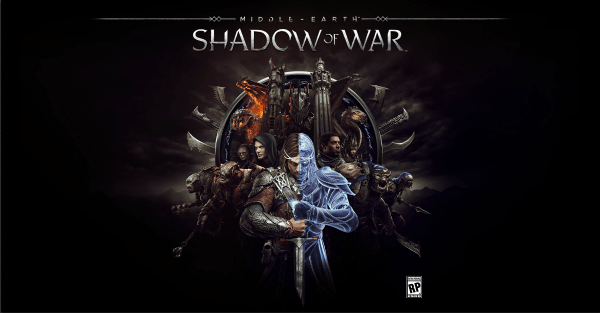Unlike in the film industry, in which underwhelming sequels are somewhat the norm, video games often differ in that they can be (and frequently are) quite a bit better than the original. It's a chance for developers to iron out those flaws that earned maybe a little too much media attention, an opportunity to innovative when possible and improve where necessary. Something earned the game a chance for a follow-up installment, after all, and it's that aspect of the game that can safely polished and left otherwise untouched as resources are diverted to perfect the rest of the experience. Such is the case in Middle-earth: Shadow of War, which - until quite recently - seemed like it would be one of the most popular video games of the year.
Videos by FanBuzz
Unfortunately, the game's popularity seems to have peaked early. A highly unpopular decision by Warner Bros. to implement a system of microtransactions into Shadow of War has generated a significant level of outrage among the gaming community, resulting in various boycotts and a momentary tide of negative coverage. This, combined with the publisher's bizarre decision to lock a DLC pack meant to honor a late developer behind a paywall, has seemingly tanked much of the upcoming title's potential.
In a recent interview with Eurogamer, Monolith's design director Bob Roberts attempted to explain the role microtransactions will play in Shadow of War. According to Roberts, the game has very much been balanced around players who don't intend to purchase any loot boxes.
"We do a ton of playtesting and make sure it is tuned to a setting where people can enjoy it. We kept all the loot boxes and the economy of real world money turned off in playtesting so we know we are balancing around an experience which is rewarding without any of that stuff."
Though intended as a reassurance, the meaning behind the above statement has failed to impress more than a few readers. One commenter was quick to point how it sounded like the system has undergone no playtesting at all, and that the developers really don't have an accurate estimate of how loot boxes will impact the game.
Other tidbits from the interview have elicited similarly unimpressed responses. In response to being asked why the system was implemented at all, Roberts stated that:
"...It's there, from my perspective, for people who are protective of their spare time and scared when a massive game comes along that they're not getting to see the full experience.
It's the same design philosophy as us adding in difficulty modes. So we now have Easy mode, and we've added Hard mode at the other end of the spectrum. Frankly the Nemesis system comes to life when you are dying loads, so you could see Easy mode as a system which makes the game less enjoyable if you are the type of player who really should have put it on Hard. It's putting more control in people's hands - saying, you know how you play best, you make that choice."
The real question that everyone's been asking - why a game that costs at least $59.99 is asking for even more money - was brought up towards the end of the interview, though Roberts' response is more than a little disappointing in that it effectively dodged the question altogether.
"You put your 60 bucks in for a big game like ours upfront and our focus is that its initial purchase price is more than worth it. You want people to be pleasantly surprised by how much stuff is in it."
The entire interview is available to read on Eurogamer's website, so be sure to give it a look. As for Middle-earth: Shadow of War - the title is due to release on October 10 for the PlayStation 4, Xbox One, and PC. For more information about the microtransactions or about Shadow of War in general, feel free to browse our previous articles on the subject.

